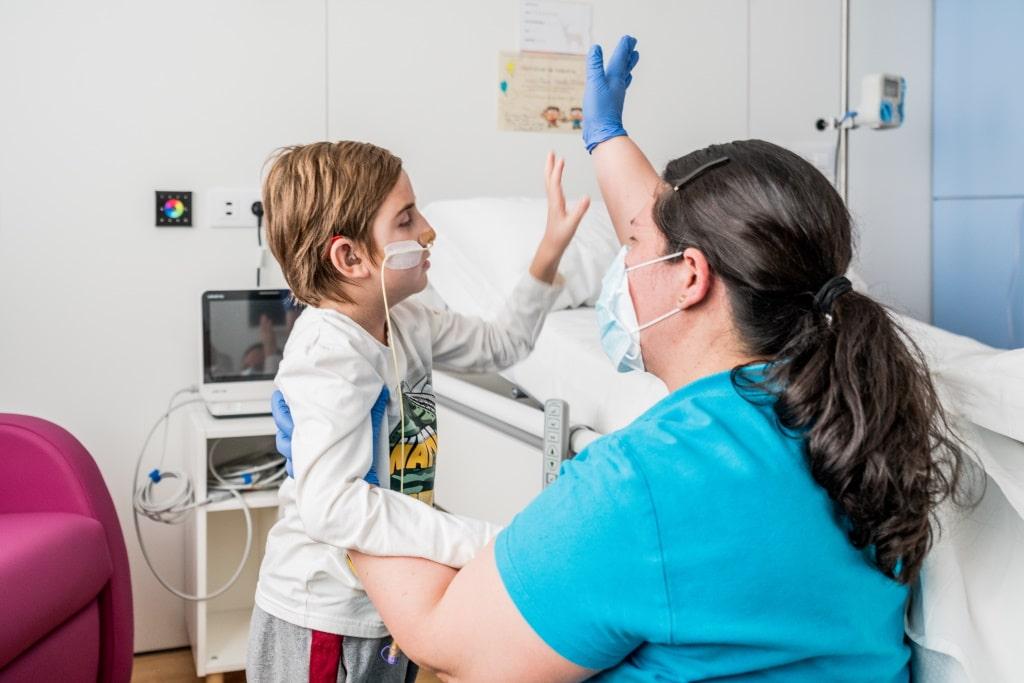La Casa de Sofía is an alternative to traditional hospitalisation for chronic pediatric patients

Most patients admitted to the facility were able to return home afterwards.
Since the launch of La Casa de Sofía in 2022, healthcare for pediatric patients with complex chronic diseases or those receiving palliative care has been transformed. This one-of-a-kind facility in Spain is an alternative to traditional hospitalisation, avoiding admission when it is not necessary (e.g., acute flare-ups), after a stay in hospital (convalescence) or to offer care support to patients with advanced disease or who are at the end of life if they are unable to be at home.
In the more than two years since its opening, on average, over 75% of attended patients came from being admitted to hospital, and around 10% came from home or from the emergency department. Other admissions included 6% from palliative care and the rest due to other causes (dermatology care, long-term antibiotic therapy, etc.)
More than 87% of patients returned home after discharge, with around 6% requiring hospital admission due to exacerbated symptoms or for further specialised testing.
Patient types: under 10 years old and in a situation of convalescence
The average age of patients is around nine years old, and three in four patients are in a situation of convalescence, meaning they are recovering from medical or surgical procedures. The average stay length is between seven and 11 days, depending on the case. Many families also need training in administering medications, mobilising their child or how to use and manage support devices, among others.
Alongside providing healthcare and educating on patient care, La Casa de Sofía provides all of the required resources so that the family can give their child the quality of life and the level of autonomy they deserve, both during their time in the facility and, most importantly, upon their return home.
Among the various aspects of the centre, of particular note is the overall care given to the patient and their family, as well as the remarkable volume of respiratory support activity. This is due to a large part of target patients (almost 25%) needing mechanical ventilatory support, which, for pediatric patients, is a highly specialised area.
There are around 20 full-time staff members working in the centre, and a further 10 working part-time. Permanent staff includes nurses, nursing assistants, pediatricians, psychologists, physiotherapists, orderlies and administrative staff. This team is supported by staff from the Pulmonology, Social Work and Child Life departments, among others.
There are also more leisurely activities carried out for patients at the centre, such as art therapy (230 sessions in 2023), animal-assisted therapy (208 sessions), music therapy (27 group concerts) or hospital clowns (120 sessions). There have also been cinema nights, astronomy workshops and volunteer budding programmes in both individual and group sessions.
La Casa de Sofía conducts its activity as per the Xarxa d'Atenció Pal·liativa Pediàtrica Integral [Integral Pediatric Palliative Care Network] (XAPPI), a project developed by the Generalitat de Catalunya's Department of Health consisting of the SJD Barcelona Children's Hospital, Vall d’Hebron University Hospital and Parc Taulí University Hospital, among others.
This centre is also part of the Únicas project, which brings together 25 national hospitals, primary healthcare centres and research facilities with the aim of improving healthcare for patients with rare diseases.




